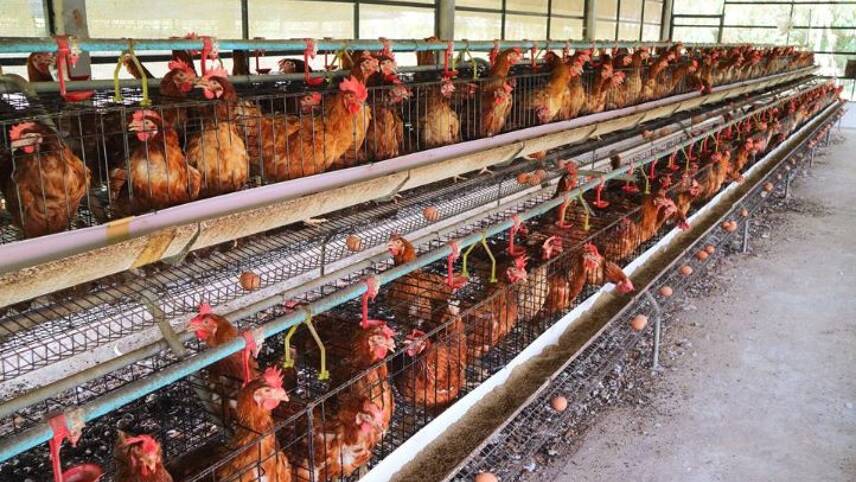Register for free and continue reading
Join our growing army of changemakers and get unlimited access to our premium content

More than 800 million people are chronically undernourished and a further 2 billion are classed as obese
Published on Monday (28 January) after extensive research by 43 scientists, the Lancet Commission’s report on obesity, under-nutrition and climate change cites these “inter-connected” issues as “three of the gravest threats to human health and survival”.
The 56-page document argues that these challenges are all being driven by the so-called “Big Food” industry – the global systems in which the majority of the world’s mass-produced food is grown and manufactured – which is estimated to account for around a quarter of carbon emissions globally.
The fact that businesses within this industry have been allowed by governments to adopt a “siloed” approach to environmental and social sustainability has created unsustainable systems which are hard to change, not routinely governed and prohibitive to transparency, the report states.
Specifically, it criticises corporates lobbying against positive change within the beef, dairy, sugar, and ultra-processed food and beverage industry sectors, and governments for failing to develop dietary guidelines which account for planetary health as well as human wellbeing.
Overall, the report acknowledges the progress certain businesses and countries have taken in championing fair access to nutrition, sustainable agricultural practices and low-carbon diets, while concluding that the pace of action more widely is not sufficient to meet the aims of Sustainable Development Goal (SDG) 2: Zero Hunger.
In order to spur progress, the report recommends that an international treaty regulating all ‘Big Food’ sector stakeholders, plus national and local governments, is implemented. Such a treaty must decouple commercial interests with policy decisions, prioritising planetary and human health over financial profits.
This move, the Lancet Commission claims, would make it easier to hold corporates and suppliers using unsustainable practices to account, and for corporates and other key stakeholders to collaborate in driving positive change. It would also create an environment in which corporates could align sustainability with profitability in both the short-term and the long-term.
“The common drivers of obesity, undernutrition and climate change indicate that many systems-level interventions could serve as double-duty or triple-duty actions to change the trajectory of all three pandemics simultaneously,” the report states.
“Linking initiatives at a global level (eg. SDGs and UNFCCC with the Decade of Action on Nutrition), national level (across health, education, social affairs, agriculture, and climate change ministries), and local level (eg. health and non-health organisations) will foster systemic thinking and double-duty or triple-duty actions.”
Taxes on red meat and tax breaks for farmers producing crops using low-carbon, resource-efficient practices are a further recommendation of the Commission.
Tough stats to swallow
The report is the latest in a string of calls to make global food systems more sustainable, amid rising diagnosis rates of diet-related diseases and rising levels of greenhouse gas (GHG) emissions.
At the World Economic Forum’s (WEF) 2019 summit in Davos last week, the Ellen MacArthur Foundation unveiled research revealing that, for every dollar that is spent on food, governments and charities spend two dollars compensating for the negative effects these products have on health, the environment and the economy.
Another key finding detailed in the NGO’s ‘cities and a circular economy for food’ report is that, if global food systems do not become circular, five million people will die each year due to food-related conditions by 2030. This accounts for those affected by environmental degradation caused by food production, as well as those suffering from malnutrition and those who are obese.
Similarly, the Lancet Commission recently published new, separate scientific research into ‘planetary boundary-friendly’ diets, urging governments to implement dietary guidelines which accounted for water stewardship, carbon emissions and soil degradation as well as public health.
Such guidelines would see members of the public filling half their plates with produce at each meal and consuming just one beef burger every fortnight, after the WEF found that beef is a leading cause of diet-related deaths in developed countries.
These findings have been made public at a particularly timely point, given that hundreds of thousands of people are currently taking part in Veganuary – a campaign challenging participants to eat only vegan foods for 31 days, with a view that they will change their dietary habits in the long-term.
The campaign is being supported by a string of food and drink brands, including Gregg’s, Pizza Hut, Waitrose & Partners and Tesco. Marks and Spencer (M&S), has also added 60 chilled and frozen dishes suitable for vegetarians and vegans to its offering to mark the occasion. The retailer’s director of sustainable business Mike Barry recently told edie that he hopes the move, compounded by scientific studies, will place land use under the spotlight this year.
Sarah George


Please login or Register to leave a comment.